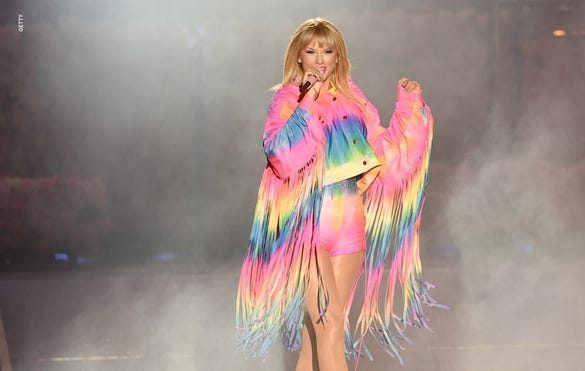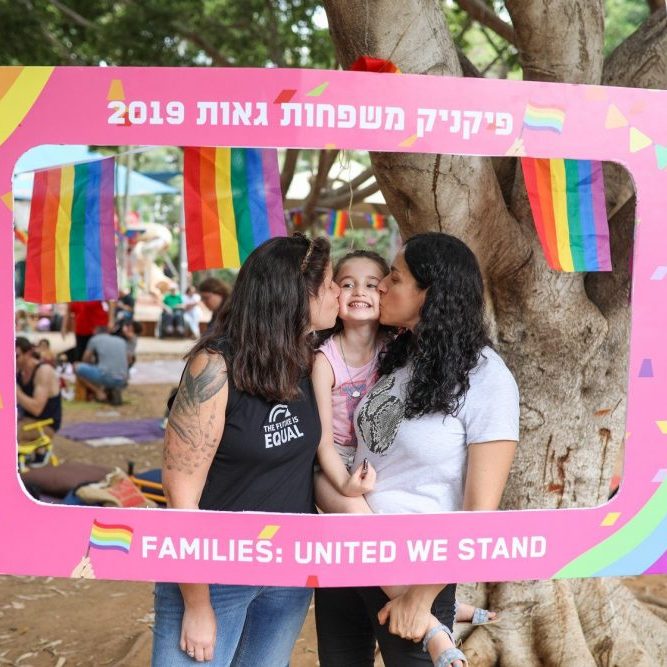
Brands that support LGBTQ equality are critical to the LGBTQ community, translating overwhelmingly into purchasing decisions — are key findings from the 14th Annual LGBTQ Community Survey released today.
The survey, conducted by Community Marketing & Insights (CMI), the leader in LGBTQ consumer research since 1992, highlights brand expectations, pressing political and social concerns, key purchasing motivations and more in this large study of LGBTQ consumers.
Brands that take a stand and support LGBTQ equality are winning with the community as 85% of those surveyed agreed that corporations that support LGBTQ equality are “more important than ever,” with 80% agreeing that companies that support LGBTQ equality “will get more of my business this year.” 73% have consciously decided to purchase over the past 12 months, at least partially due to a company’s LGBTQ-inclusive outreach, employment practices, or LGBTQ-supportive political stance.
The brands that LGBTQ consumers consider doing “the best job outreaching to the community,” asked through an un-aided write-in question, included (in alpha order): Absolut, Amazon, American Airlines, Apple, Delta Air Lines, Disney/ABC, Google, Nike, Starbucks, Subaru, Target, TomboyX, and Wells Fargo.
“In 2020, there are a lot of concerns on the minds of the LGBTQ community, and brands must take a stand and commit to a deeply authentic, ongoing strategy to connect and engage the LGBTQ community,” said Thomas Roth, CMI’s President. “For brands looking to enter this market or expand their LGBTQ market share, understanding the community’s nuances through research truly provides the roadmap and competitive edge.”
This year’s LGBTQ tracking study included 34,000 respondents from 130 countries. The survey was fielded in five languages between March 14 – May 31, 2020. The findings in the report focus on the USA data for 17,230 self-identified LGBTQ community members across ethnicities, gender identities, and generations aged 18 to 75+.
Key USA Survey Findings
- Top of Mind Social Issues Among the LGBTQ Community
The findings revealed that LGBTQ equality is essential, as expected, but is not the only issue on the community’s radar. In a tumultuous 2020, the study identified the five most important issues facing the LGBTQ community: LGBTQ equality; health care quality and costs; fair elections and protection of democracy; racial discrimination; and the government’s ability to respond to the COVID-19 pandemic. - Stress About the Upcoming Elections
Politically, the LGBTQ community trends liberal: 56% describe their political views as liberal and 29% as moderate to liberal. Few in the community represent themselves as politically conservative. 93% said that they would vote in the November election. 63% of the LGBTQ community has significant anxiety/tension about the upcoming US election; 90% have at least some anxiety/tension about the election. Acknowledging this stress and visibly supporting LGBTQ-favorable political candidates will impact the LGBTQ community. - Corporations Must Communicate Their Support
The study found that supporting LGBTQ community organizations and taking a stand for LGBTQ human rights are key approaches to establishing a brand as an authentic LGBTQ partner. The survey also confirmed that it takes more than doing the “right thing” to make an impact. Marketers must also communicate their efforts to the community through LGBTQ media channels. Otherwise, a corporation’s good deeds may go unrecognized. - The Loss of Pride Events
There is a feeling of loss in the LGBTQ community this summer as many Pride events were cancelled due to COVID-19. 82% of the LGBTQ participants felt that Pride events are “important to our community.” Brands can address this loss and support LGBTQ Pride in their promotions this summer and beyond, even if they are not officially sponsoring significant events this year. - Less Financially Confident
The LGBTQ community feels decreased financial confidence due to COVID-19 and racial discrimination. Survey participants completed tracking questions about their finances and economic faith. Not surprisingly, there was a downgrade in LGBTQ economic confidence this year, with 6% of participants lowering their financial self-evaluation of the past year and 13% lowering their financial expectations for the future year. The African American LGBTQ community expected the most significant financial decline for the coming year (down 19%) followed by the Latinx LGBTQ community (down 15%). This demonstrates the dual economic impact of discrimination and COVID-19 on LGBTQ communities of colour. - Terminology Within the Community
In CMI’s annual update on community terminology, LGBTQ has overtaken LGBT as the preferred term to describe the community (although both tested favourably). Adding the “+” symbol (i.e. LGBTQ+) gained some acceptance over the past year (3% more favourable), but LGBTQ+ still lags behind LGBTQ. - Urban vs. Rural Environments
The survey demonstrated that LGBTQ participants live in various community types within the United States (urban, suburban and rural). It would be a mistake to assume that most LGBTQ people live in big cities. However, the more urban the area, the more LGBTQ-friendly the community is considered to be. 94% of LGBTQ participants think the urban environment in which they live to be LGBTQ-friendly, compared to 45% of those living in small towns and rural areas. LGBTQ people living in smaller-size communities–and the organizations that serve them–need support. Corporations often overlook smaller communities in their LGBTQ outreach and corporate giving. Distributing marketing and sponsorship funds to these smaller communities is a critical way to support the entire LGBTQ community authentically. - LGBTQ Consumer Purchases
CMI’s research reports contain purchasing data for many consumer products, including travel, beverages, skincare, health, electronics, entertainment, financial services, and auto.


